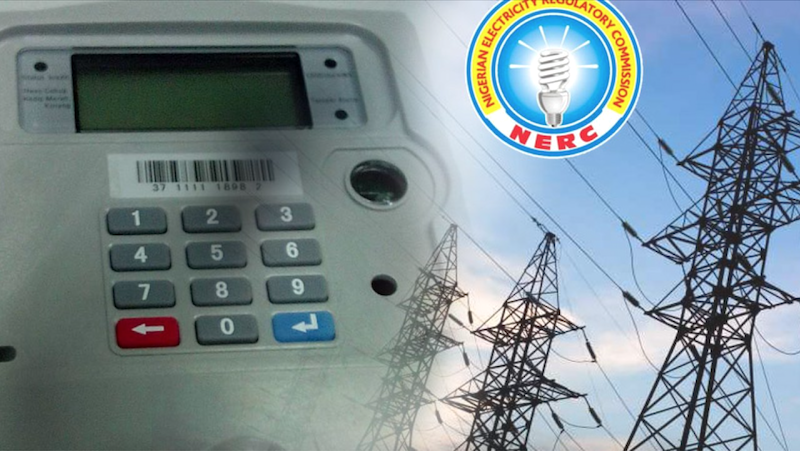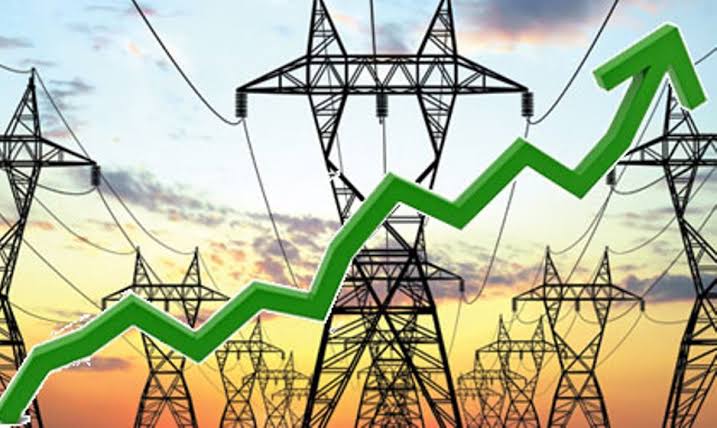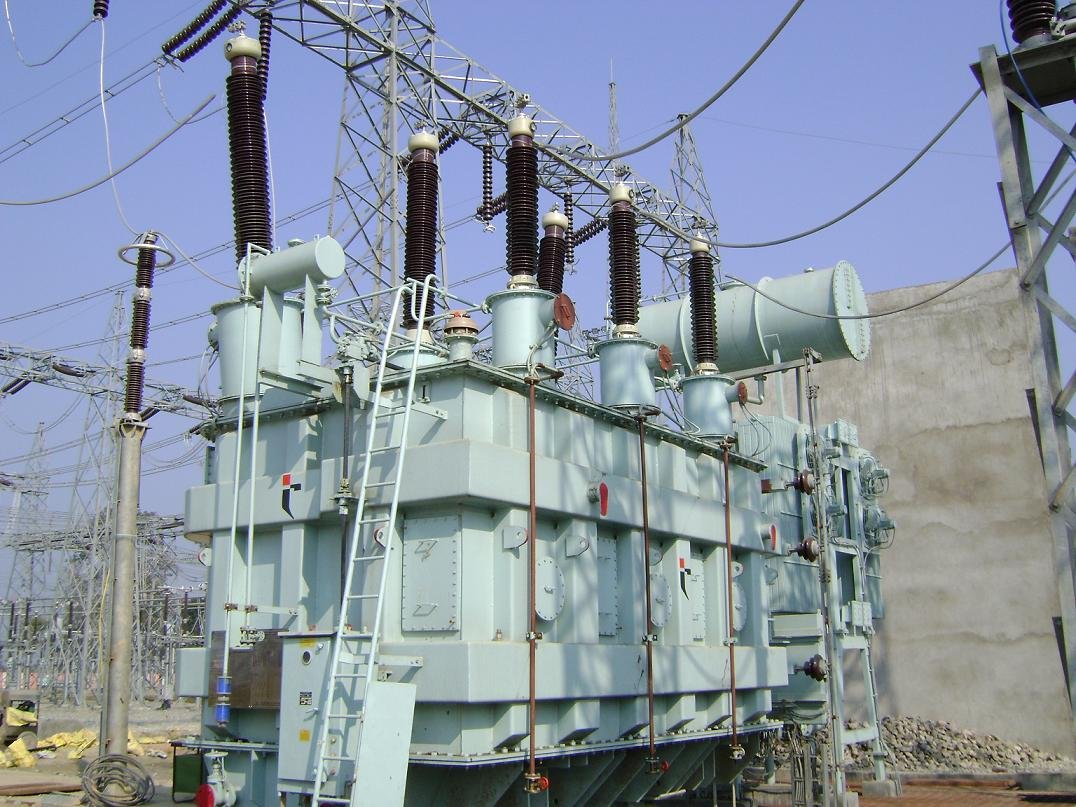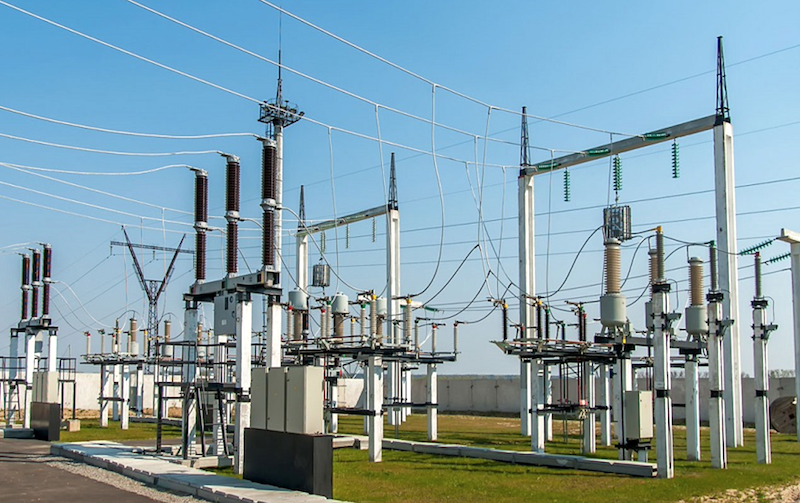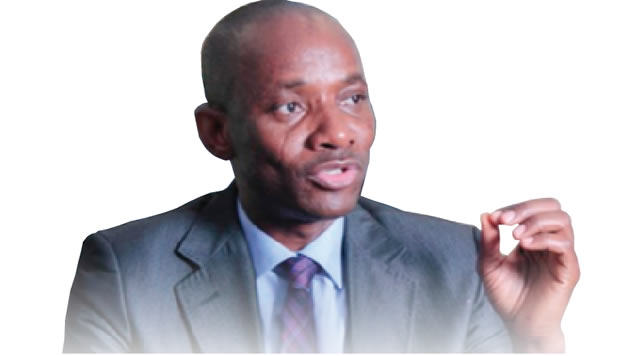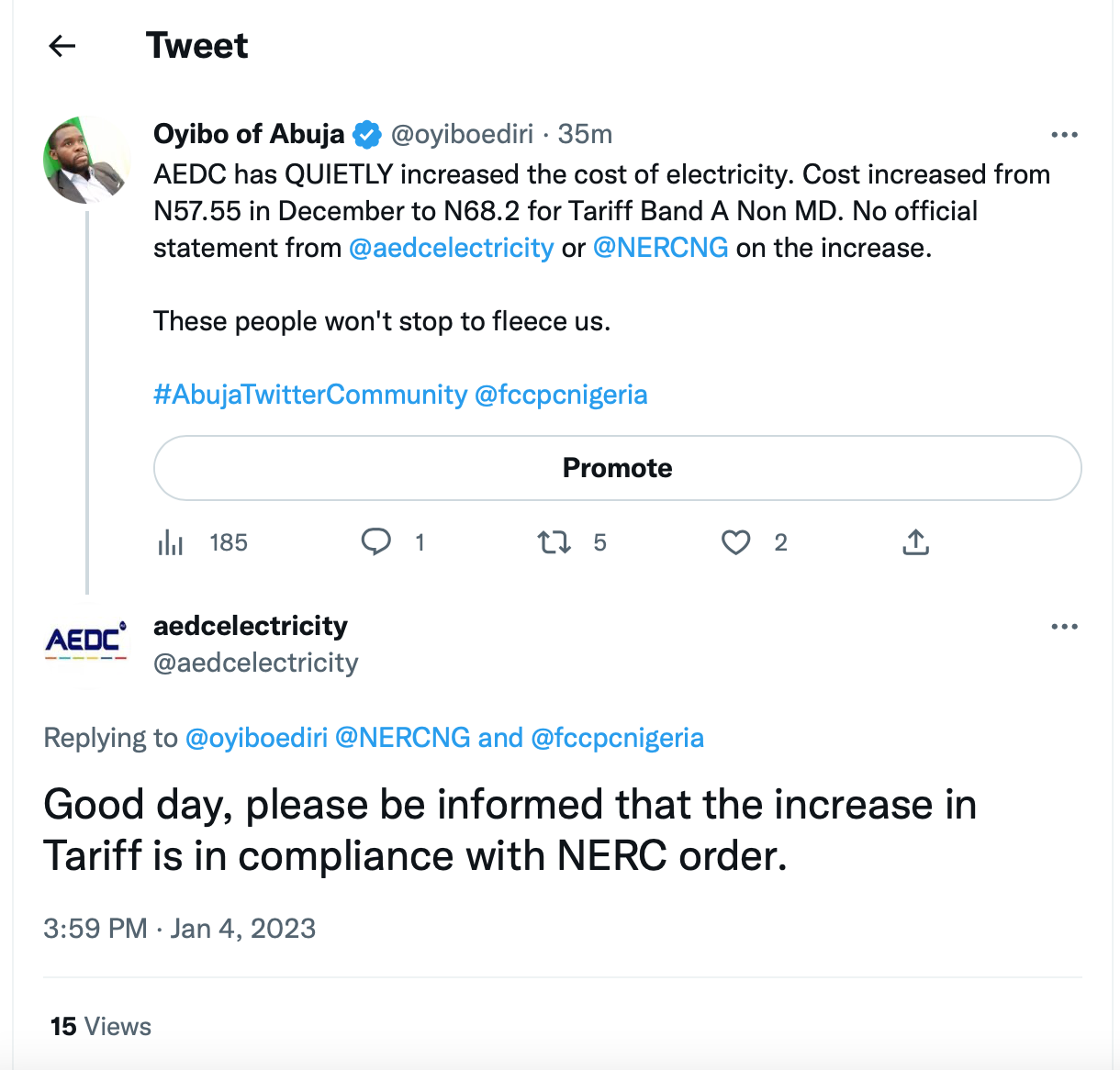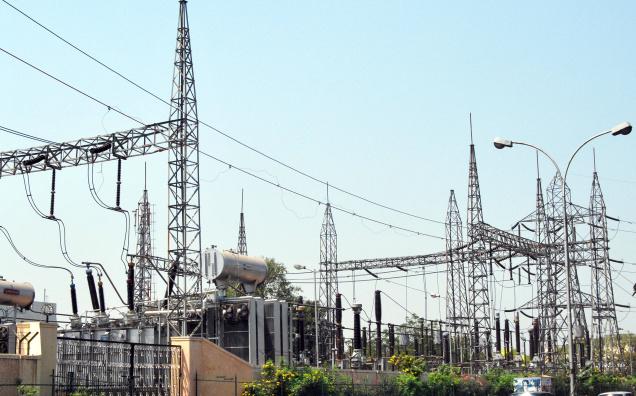The Nigerian Electricity Regulatory Commission (NERC) has remained silent after it was confirmed that electricity distribution companies in the country have quietly hiked tariffs across their franchise areas.
TheNewsGuru.com (TNG) confirms the increase in electricity tariffs on Wednesday but calls put through to NERC’s Commissioner-in-charge of Consumers Affairs, Aisha Mahmud were not answered.
NERC spokesman, Usman Arabi also neither picked up his calls nor responded to inquiries on the increase.
The tariff hike was first observed on the Tariff Band A Non-MD, which increased from N57.55 per unit it was in December 2022 to N68.2 per unit in January 2023.
Though the NERC had not released an official statement on the matter, the Abuja Electricity Distribution Company (AEDC) confirmed the tariff increase in a tweet the electricity distribution company has deleted.
But on its website, the electricity regulatory authority explained that one of its primary functions as contained in Section 32 (d) of the Electric Power Sector Reform Act, 2005 was to ensure that the prices charged by licencees were fair to customers and sufficient to allow the licencees to finance their activities and obtain reasonable profit for efficient operations.
“In pursuant to the authority given under Section 76 of the EPSR Act 2005, the commission established a methodology for determining electricity tariff in the Nigerian Electricity Supply Industry and subsequently issued a tariff order called the Multi-Year Tariff Order that sets out tariffs for the generation, transmission and distribution of electricity in Nigeria.
“The purpose of the MYTO is to set cost-reflective tariffs which will allow the power sector to be properly funded and functional. It provides a 15-year tariff path for the NESI with limited minor reviews each year in the light of changes in a limited number of parameters (such as inflation, interest rates, exchange rates and generation capacity) and major reviews every five years, when all of the inputs are reviewed with the stakeholders,” NERC stated on its website.
TNG reports the tariff increase that was first observed on the Tariff Band A Non-MD, which was increased from N57.55 per unit in December to N68.2 per unit, amounts to about a 19 per cent increase in tariffs.
However, neither NERC nor the various electricity distribution companies, 10 in total, have made the current rates available for electricity consumers.
Meanwhile, the Enugu Electricity Distribution Company (EEDC) in December confirmed a recent minor electricity tariff adjustment of about 13 per cent, which the company said was in reflection of economic realities meant to keep the electricity industry alive.
EEDC had in December increased the tariff rate for Non-MD customers under R2SB class from N58.47 to N66.47 per kilowatt, which cuts across all categories of customers within the company’s network franchise area in the South-East.
The Head, Corporate Communications of EEDC, Mr Emeka Ezeh had disclosed that the minor adjustment, which took effect from Dec. 1, 2022, was approved by the Nigerian Electricity Regulatory Commission (NERC) some months ago across all electricity distribution companies in the country.
According to him, there is a minor adjustment by some percentage across board in the whole electricity distribution companies nationwide currently and it is not peculiar to EEDC alone.
He said: “The minor increase in the rate of tariff approved by NERC is for Electricity Distribution Companies (DisCOs) to meet up with the current economic realities in the power/electricity sector.
“Currently, the sector is seriously affected by the high inflationary rate in the country; as it affects our daily operational maintenance and services to our esteemed customers in our network.
“The issue of high foreign exchange rate is affecting our business too in terms of importing most of our spare parts needed for daily maintenance and repairs in the network.
“The high foreign exchange rate also impact on EEDC ever increasing investment on installations to further expand and fortify the network, leading to the improved services customers are experiencing within the South-East.”
The EEDC spokesman appealed for the understanding of its esteemed customers, adding that if the indices mentioned and other factors “turn positive tomorrow; we belief that NERC will review the tariff downwards”.
“The recent development is for us to remain in business, service our customers better and maintain obligations to other stakeholders within the sector/industry,” he added.
However, customers within EEDC network in Enugu have continued to complain that the increase is already tightening the existing economic hardship.
They were of the view that before now, the high inflationary rate of about 22 per cent, according to the National Bureau of Statistics (NBS), was even affecting how their families feed daily.
Mr Obinna Nwafor, a resident of Achara layout in Enugu, noted that it was terrible that the residents cannot get any economic respite; “as there are so many struggles to survive in the country”.
Nwafor said: “I wish this increase has not come now; so that at least we can have a sector that is relatively stable and not being affected by the nationwide inflationary trend”.
Mr Jude Onyia, a resident of Uwani axis of Enugu metropolis, urged EEDC to consider those in the lower categories of their tariff line and exclude them from the increase.
“It is clear that those of us in the low category of the tariff cannot easily meet up and other alternatives to electricity are quite costly too,” Onyia said.
